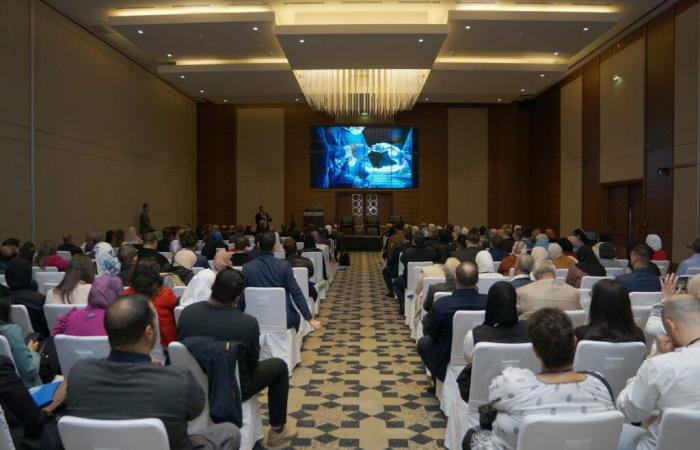Since its founding in 2022, the Scientific Association of Hepatobiliary and Pancreatic Pathologies (ASPHP) has continued its mission of raising awareness and therapeutic advancement by organizing, on October 31, an international congress at the Marriott hotel in Constantine.
This medical meeting brought together Algerian and foreign specialists around the theme of hepatocellular carcinoma (HCC), neuroendocrine tumors and liver metastases. Professor Youcef Khenchoul, general surgeon and president of the association, stressed to El Watan that this initiative aims to highlight the process of treating severe pathologies affecting the liver and pancreas, by integrating a multidisciplinary approach which brings together surgeons, radiologists, epidemiologists, oncologists and pathology specialists. During this third edition, liver cancer was the subject of particular interest, because it requires a diversified and coordinated therapeutic approach.
The liver cancer care pathway is based on a sequence of strategies that begins with prevention, screening for risk factors, diagnosis by imaging and analysis of pathologies, leading to surgical management and oncological treatments. , including chemotherapy and radiotherapy. Our interlocutor insisted on the fact that each step is carried out by a specialist, emphasizing the need for synergy between disciplines to optimize patients’ clinical results. However, liver cancer in Algeria remains a still contained pathology.
In his speech, Professor Abdelhak Lakehal, epidemiologist at the Didouche Mourad hospital, in the wilaya of Constantine, revealed that the prevalence of liver cancer remains relatively low in Algeria compared to other regions, notably Asia. Globally, liver cancer occupies the sixth position among the most common cancers and represents the third cause of cancer mortality, totaling 8% of deaths linked to this disease. In Algeria, this pathology is between the 14th and 15th positions among men, and between the 18th and 19th positions among women.
This rate could, however, increase due to the evolution of eating habits towards a more Western model. “We must aim for higher prevention rates. You have surely noticed that the presentation of risk factors includes liver diseases independent of viruses, such as hepatitis B and C.
These diseases caused mainly by obesity constitute an interesting fact. In Algeria, we are seeing a visible change in eating habits, influenced by an increasingly Western diet. This development brings us inexorably closer to a prevalence rate similar to that observed in France,” explained Professor Khenchoul.
He specifies that the objective is to prevent these diseases by acting on risk factors in order to stop their progression before they reach an advanced stage requiring complex and expensive treatments.
Intensify screening
The crucial issue of organ shortage was also addressed. As explained by Professor Marc Antoine Allard from the Hepato-Biliary Center at Paul Brousse Hospital in Villejuif, Paris, liver transplantation remains an exceptional recourse due to the lack of available organs. Transplantation can only meet a third of the world’s needs.
This observation has led practitioners to favor surgery for the most critical cases and to reserve the transplant in the event of recurrence. Professor Boumendjel, from gastro-hepatoenterology at Constantine University Hospital, stressed the importance of early detection of HCC to optimize the chances of treatment.
It recommends diagnosing chronic liver pathologies using simple tests, extending screening beyond patients with cirrhosis, maintaining a regular interval between ultrasound scans and referring to specialist radiologists. Furthermore, it encourages the use of risk assessment scores to adjust the frequency of examinations, particularly in high-risk patients, in order to use the most efficient imaging techniques.
Professor Khenchoul took advantage of this event to advocate for increased awareness among public authorities regarding organ transplantation, particularly in the treatment of liver and pancreatic cancers.
Describing the transplant as “icing on the cake”, he recalled that, despite the availability of suitable technical platforms, support from the authorities and awareness of organ donation, particularly post-mortem donations, are essential. “Algerian society remains hesitant about organ donation due to fears related to organ trafficking and cultural barriers.
It is therefore essential to initiate collective action to overcome this reluctance, involving not only health professionals, but also the media and public authorities,” he declared. Although efforts have been made by the State to improve access to medical equipment, particularly for laparoscopy, immunotherapy and cancer treatments, disparities persist, which hampers equal access to care across the board. the country.
In conclusion, Professor Khenchoul insisted on the importance of establishing a fully equipped hepatobiliary center, capable of centralizing all care and ensuring optimal management of these serious pathologies.






